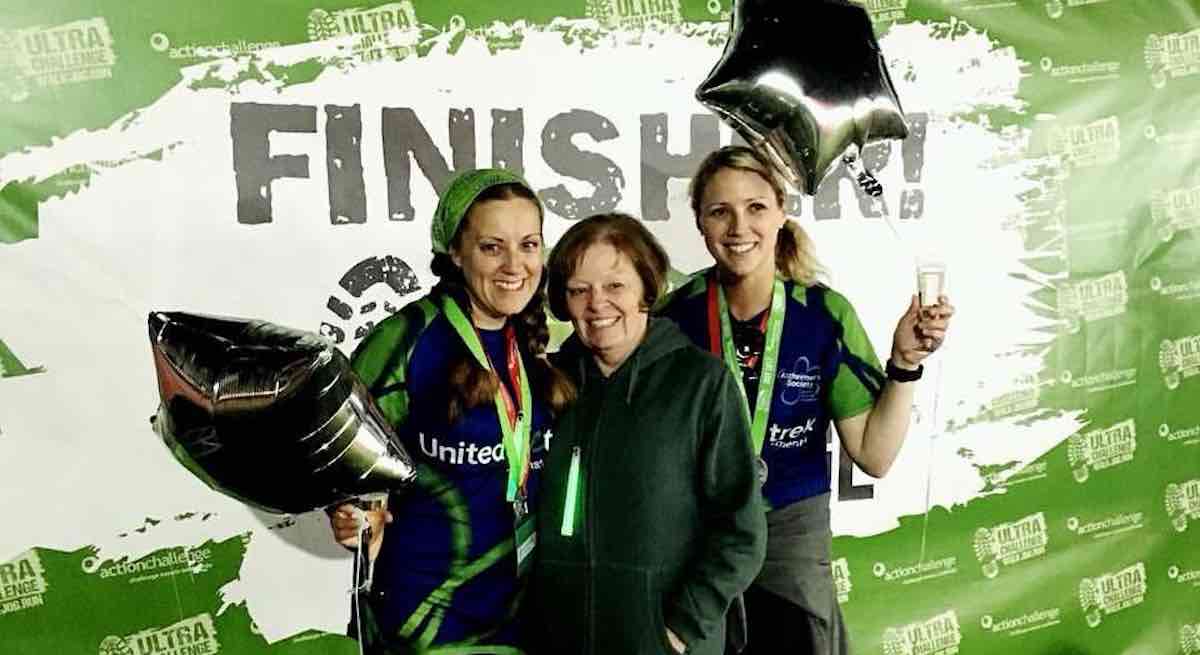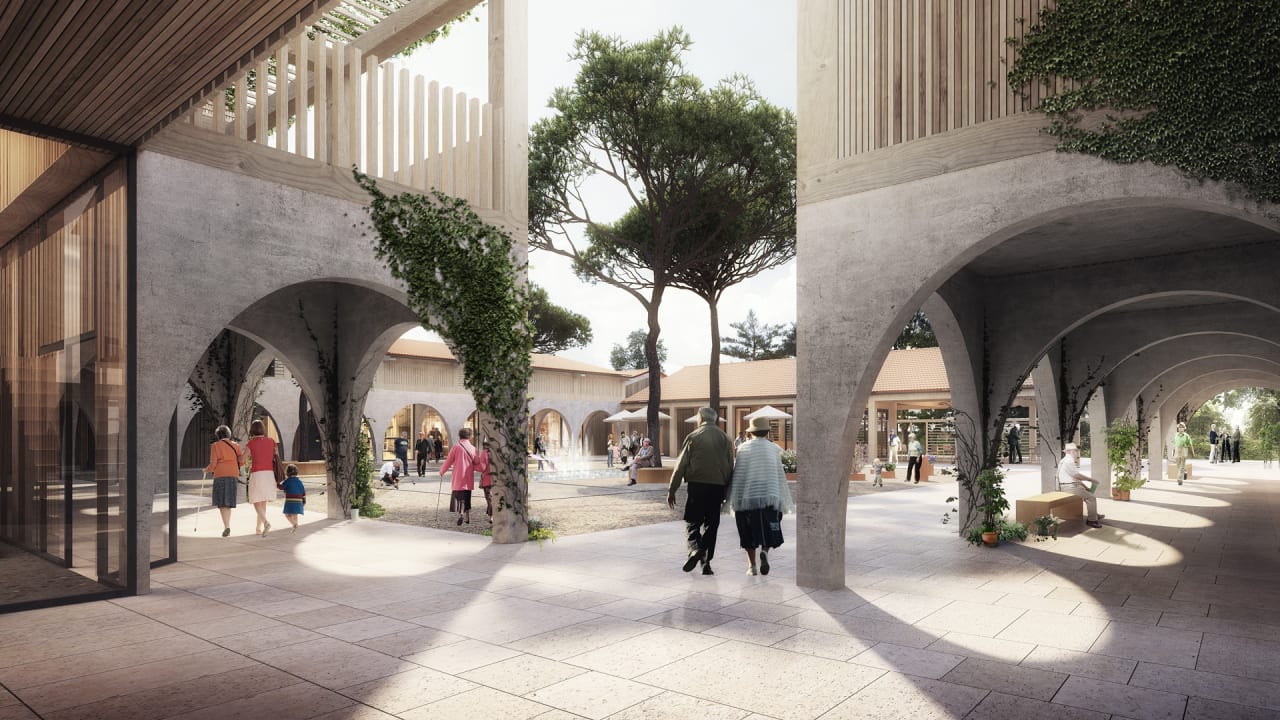"How quickly do we experience the benefits of exercise? A new University of Maryland study of healthy older adults shows that just one session of exercise increased activation in the brain circuits associated with memory - including the hippocampus - which shrinks with age and is the brain region attacked first in Alzheimer's disease."
Posts tagged as “Dementia”
"Your joints may be achy and your back may be sore, but if you have chronic pain of any type, do something about it. New research from the University of Florida Institute on Aging finds chronic pain — left untreated — can cause the brain to show signs of aging, In some individuals, brain aging has led to decreased mobility, Alzheimer’s and even an earlier death."

"Alzheimer's patients taking diabetes drugs may have fewer signs of dementia in their brains than similar patients not taking the drugs, new research finds. Specifically, the post-mortem study found that people who'd taken diabetes meds had fewer abnormalities in tiny blood vessels in their brains, and less abnormal gene activity."
Some people with dementia wander away and get lost. A bracelet can help find them. | Washington Post
"Kirk Moody is still searching for his wife, Nancy Paulikas, who went missing in Los Angeles in 2016. Her disappearance helped inspire a new program there to safeguard people with dementia or cognitive conditions that make them prone to wander. (Rob Kuznia) In October 2016, a 55-year-old retired software engineer with early-onset Alzheimer's wandered out of the Los Angeles County Museum of Art as her husband used the restroom. Nancy Paulikas hasn’t been seen since. Kirk Moody still spends time nearly every day looking for her. 'There hasn't been a single trace,' he says."

Shirley Lewis is a 68-year-old woman who adores the Mamma Mia films and also suffers from Alzheimer’s disease.
Lewis had gone to the Cineworld movie theater in Cwmbran, Wales to see the film with her daughter Rhiannon last month.
The senior was so delighted by the music, she started singing along to all of the ABBA tunes in the film.
The theater not only offered free tickets to Rhiannon and her mother, they also hosted an entire screening for people with dementia and offered discounted tickets.
“The event means a lot to us as a family,” Rhiannon happily told the news outlet.

The average nursing home can be depressingly institutional. For the growing number of people suffering from dementia, these facilities are even worse: Their repetitive architecture makes it easy to get lost, and they look nothing like the places where patients have lived their entire lives. The Copenhagen-based firm Nord Architects is building a series of centers for patients with Alzheimer’s and dementia that feel more like villages or cities, rather than bleak institutions. Since residents are already dealing with a debilitating disease that makes them forgetful, being in an environment that’s similar to what they’re used to could ease the transition from living at home to living in a care-taking facility. “As their cognitive level slowly degenerates and their ability to read new things disappears, they relate to things they know much better, and things they knew in their childhood,” Gregersen says. “All of these things need to be incorporated into the design so we don’t create [places] where people get lost and confused.”
There’s a reason that most medical facilities aren’t designed like this. Big, modern buildings make it logistically easier to care for more people more efficiently...
![]()
One of the first dementia patients Laurence Aëgerter met was in the later stages of the illness. She visited the man at a care facility in Switzerland to note his reactions to photographs she had brought along. As she showed him pictures and asked him to remark on them, he fluttered in and out of awareness, like a lamp flickering on and off, she said. For 10 minutes, the patient hardly said anything, struggling to articulate basic sentences. Then, Aëgerter showed him a photograph of a cat with her kitten, and something amazing happened. "He was able to speak for five minutes in a row," said Aëgerter, a French visual artist based in Amsterdam. "That image triggered something very deep in him, a very deep memory that made him feel so strong. In those minutes, it was like he had no disease at all."
Photography has this unique place in wider culture where it’s one of the most familiar forms of capturing a moment, and also something many, if not most, of us use regularly in our lives. That familiarity is a great entry point for people to start talking about what they’re seeing and what they’re noticing in an image. This works well with a population that may not be able to recall details or facts, but can actively look at an image and talk about what it may be picturing. It also is something concrete in front of us that we can reference and relate to, rather than an abstract concept or idea, which would be harder for someone experiencing memory loss. It’s also a record of the past in many ways, and so a collection that spans the history of photography, from the early 1800s to now, is an incredible resource to use these images as a springboard for reminiscing and leveraging long-term memory in individuals where short-term memory may be difficult.
Hear Audio Interviews w/ LGBT LeadersDeveloped by the Alzheimer’s Association & SAGE a new report identifies unique challenges for our LGBT community facing Alzheimer’s & other Dementias. The brief outlines issues that arise when Alzheimer’s disease, sexual orientation & gender identification & expression intersect allowing advocates & care providers to better meet the needs of LGBT elders & their caregivers facing dementia. New research presented at the 2018 Alzheimer’s Association International Conference found that about one in 13 lesbian, gay or bisexual seniors in the United States are living with dementia.Michael Adams CEO of SAGE added, “While the LGBT community faces similar health concerns as the general public, LGBT people who receive a dementia diagnosis & LGBT caregivers face uniquely challenging circumstances.

Could different cultures teach us something about dementia?Perhaps the time has come to expand our thinking about dementia to encompass not only cellular but cultural perspectives. Our society needs to recognize that dementia is not only a brain disorder of the person suffering from it but also a social disorder that can be understood in a variety of different ways. In other contexts, such disorders tend to be viewed in light of a larger circle of social relationships and cultural traditions. All generalizations must be qualified, but we have much to learn from other cultures. In Japan, for example, to age well is not only to avoid contracting diseases but also to maintain a circle of family and friends right up to the moment when we breathe our last.
